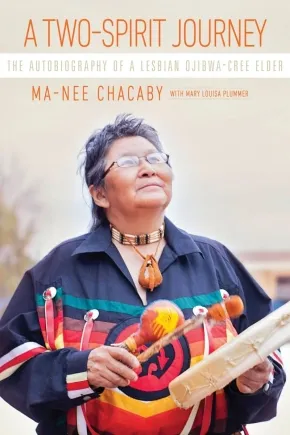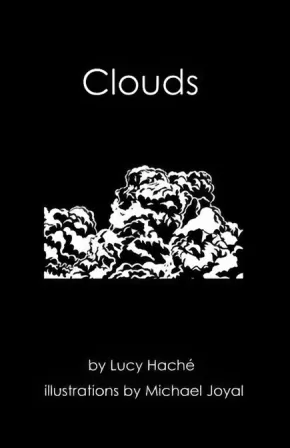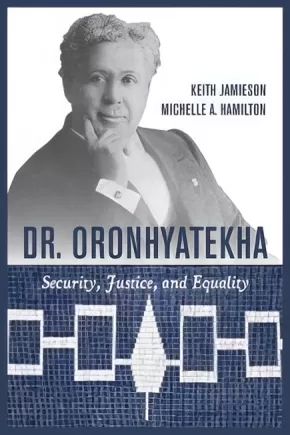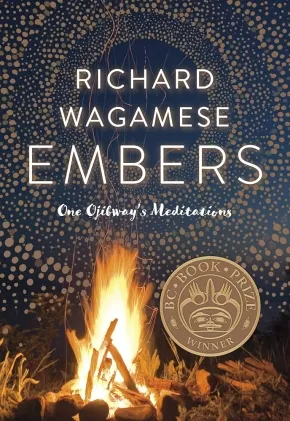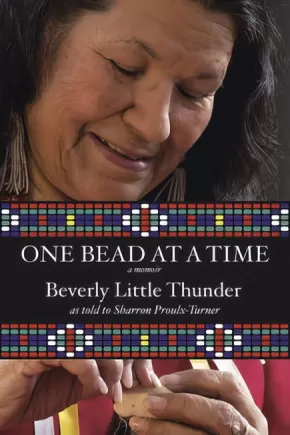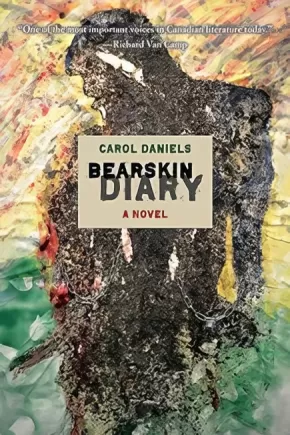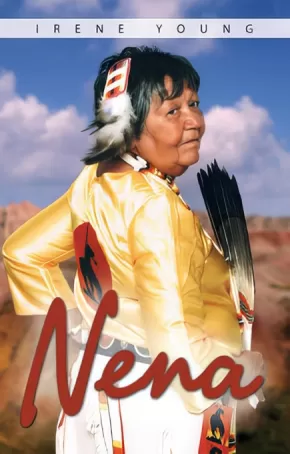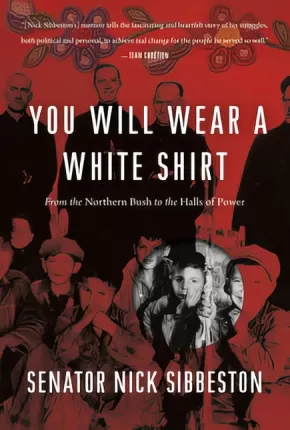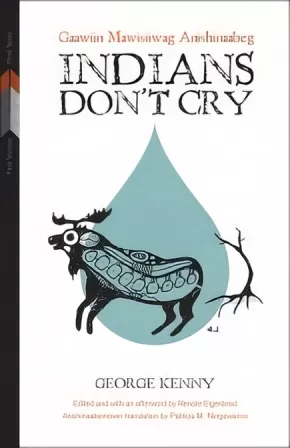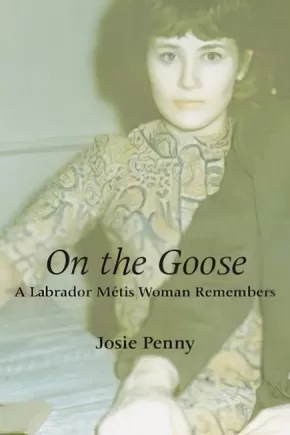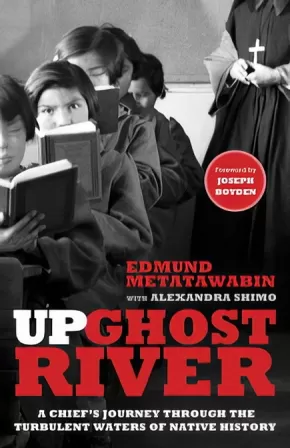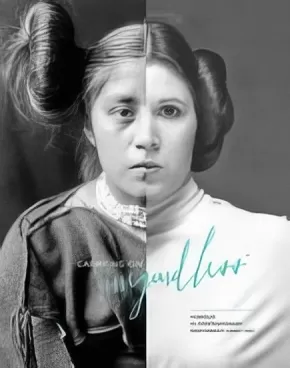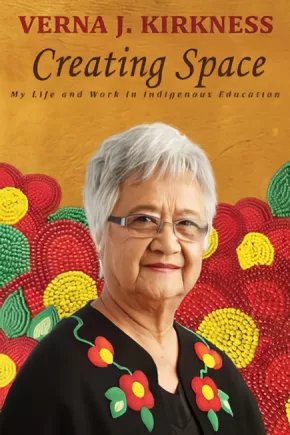
Stories of Inspiration
46
-
60
of
77 Results;
Sort By
Go To
of 6
A Two-Spirit Journey: The Autobiography of a Lesbian Ojibwa-Cree Elder
$24.95
Format:
Paperback
Text Content Territories:
Indigenous Canadian; First Nations; Anishinaabeg; Oji-Cree;
Grade Levels: 12; University/College;
ISBN / Barcode: 9780887558122
Synopsis:
Synopsis:
A compelling, harrowing, but ultimately uplifting story of resilience and self-discovery.
A Two-Spirit Journey is Ma-Nee Chacaby’s extraordinary account of her life as an Ojibwa-Cree lesbian. From her early, often harrowing memories of life and abuse in a remote Ojibwa community riven by poverty and alcoholism, Chacaby’s story is one of enduring and ultimately overcoming the social, economic, and health legacies of colonialism.
As a child, Chacaby learned spiritual and cultural traditions from her Cree grandmother and trapping, hunting, and bush survival skills from her Ojibwa stepfather. She also suffered physical and sexual abuse by different adults, and in her teen years became alcoholic herself. At twenty, Chacaby moved to Thunder Bay with her children to escape an abusive marriage. Abuse, compounded by racism, continued, but Chacaby found supports to help herself and others. Over the following decades, she achieved sobriety; trained and worked as an alcoholism counsellor; raised her children and fostered many others; learned to live with visual impairment; and came out as a lesbian. In 2013, Chacaby led the first gay pride parade in Thunder Bay.
Ma-Nee Chacaby has emerged from hardship grounded in faith, compassion, humour, and resilience. Her memoir provides unprecedented insights into the challenges still faced by many Indigenous people.
Awards
- 2025 Canada Reads winner
Reviews
“From groundbreaking and controversial AIDS awareness programs in the 1990s to the work she continues to do today, both with her own family and her extended reserve family, her life and this memoir ultimately serve as handbook of hope.” — Lara Rae, Winnipeg Free Press
"A Two-Spirit Journey is a raw and emotional story that doesn’t just show readers the author’s scars. Chacaby bares all in an honest telling of her life that includes flaws, like her struggles with substance abuse and a sometimes rocky path to sobriety. Despite the turmoil, the autobiography does have its uplifting moments and characters. Heartwarming stories of childhood friendships, and most importantly a powerful relationship between the author and her grandmother, weave feelings of optimism and hope into a life that is oftentimes surrounded by darkness.” — Scott Paradis, tbnewswatch.com
“An extraordinary account of an extraordinary life and very highly recommended for community and academic library Contemporary Biography, LGBT, and Native American Studies collections.” — Midwest Book Review
“Activist, survivor, mother, counsellor, Ma-Nee Chacaby recounts her sometimes harrowing life with a calm and steady voice, infused with resilience and compassion. Effectively designed and edited to appeal to both the general public and those engaged in Indigenous studies, A Two-Spirit Journey presents an important story, powerfully told.” — Nik Burton, Rick Walker, and Carolyn Wood, Judges, 2017 Manitoba Book Awards
“The story that Chacaby and Plummer recount is truly an extraordinary one, but it is also one that will resonate with many people whose stories have not been often told. The perspective of a lesbian Ojibwa-Cree elder is invaluable for LGBT Native youth and will be an enriching experience for many others, particularly those who have experienced abuse, disability, poverty, or the effects of colonization.” — Kai Pyle, Studies in American Indian Literatures
Educator Information
This book would be useful for courses in women's studies, social studies, and gender studies. Recommended for students in grade 12 or at a college/university level.
Caution: discussion of physical and sexual abuse.
This resource is also available in French: Un parcours bispirituel: Recit d'une ainee ojibwe-crie lesbienne.
Additional Information
256 pages | 6.00" x 9.00"
Clouds
$24.95
Artists:
Format:
Paperback
Text Content Territories:
Indigenous Canadian; Métis; First Nations; Kwakwaka'wakw (Kwakiutl);
ISBN / Barcode: 9780991761074
Synopsis:
Synopsis:
In this brave first book, Lucy Haché transports the reader with intimate revelations on self-awareness and identity by exploring both her personal and ancestral relationship to the sea, forest and sky. Through skilled restraint and beautifully astute description, Haché's prose reaches past her own contemplation to connect us all. Masterfully illustrated by artist Michael Joyal, his stunning and meteorologically accurate cloud drawings contribute to the overall sensory and transcendent experience.
Reviews
“Lucy Haché pulls universal truths from her very personal observations that will resonate long after the reader has put aside this jewel of a book. I loved each word, and every one of Michael Joyal’s perfect illustrations.” —Charles de Lint, author of Moonheart and The Onion Girl
Educator & Series Information
This book is part of the Overhead Series.
Additional Information
62 pages | 5.50" x 8.50" | 20 illustrations | Fiction
Dr. Oronhyatekha: Security, Justice, and Equality
$26.99
Format:
Paperback
Text Content Territories:
Indigenous American; Native American; Haudenosaunee (Iroquois); Kanyen'keha:ka (Mohawk);
Grade Levels: University/College;
ISBN / Barcode: 9781459706637
Synopsis:
Synopsis:
A man of two cultures in an era where his only choices were to be a trailblazer or get left by the wayside.
Dr. Oronhyatekha (“Burning Sky”), born in the Mohawk nation on the Six Nations of the Grand River territory in 1841, led an extraordinary life, rising to prominence in medicine, sports, politics, fraternalism, and business. He was one of the first Indigenous physicians in Canada, the first to attend Oxford University, a Grand River representative to the Prince of Wales during the 1860 royal tour, a Wimbledon rifle champion, the chairman of the Grand General Indian Council of Ontario, and Grand Templar of the International Order of Good Templars. He counted among his friends some of the most powerful people of the day, including John A. Macdonald and Theodore Roosevelt. He successfully challenged the racial criteria of the Independent Order of Foresters to become its first non-white member and ultimately its supreme chief ranger.
At a time when First Nations peoples struggled under assimilative government policy and society’s racial assumptions, his achievements were remarkable.
Oronhyatekha was raised among a people who espoused security, justice, and equality as their creed. He was also raised in a Victorian society guided by God, honour, and duty. He successfully interwove these messages throughout his life, and lived as a man of significant accomplishments in both worlds.
Awards
2016 Ontario Historical Society Joseph Brant Award winner
2017 Speaker's Book Award short-listed
Review
With their detailed biography of this giant of Canadian history, Jamieson and Hamilton have done an enormous favour both for aboriginals and non-aboriginals living on this piece of geography currently known as Canada.
— Tworowtimes
Key Points
- A comprehensive biography of Dr. Oronhyatekha, Canada’s first Indigenous physician, and an influential First Nations statesman.
- Covers his friendships with Teddy Roosevelt and John A. Macdonald and his international business.
- He was the first non-White member of the Independent Order of Foresters (IOF), a fraternally organized life-insurance company, having successfully challenged the race criteria for membership.
- As CEO of the IOF, he transformed it from a near-bankrupt, legally embattled organization to a financially stable international company.
- Ahead of his time, Oronhyatekha attempted to broaden the mandate of the IOF so that women and French-Canadians could belong.
- Also details the political, social, and historical context of the Six Nations of the Grand River community in the mid-nineteenth century.
Additional Information
368 pages | 6.00" x 9.00" | b&w and colour illustrations | notes, index, bibliography
Embers: One Ojibway's Meditations
$21.95
Format:
Paperback
Text Content Territories:
Indigenous Canadian; First Nations; Anishinaabeg; Ojibway; Wabaseemoong First Nation;
Grade Levels: 12; University/College;
ISBN / Barcode: 9781771621335
Synopsis:
Synopsis:
"Life sometimes is hard. There are challenges. There are difficulties. There is pain. As a younger man I sought to avoid them and only ever caused myself more of the same. These days I choose to face life head on--and I have become a comet. I arc across the sky of my life and the harder times are the friction that lets the worn and tired bits drop away. It's a good way to travel; eventually, I will wear away all resistance until all there is left of me is light. I can live towards that end." - Richard Wagamese, Embers
In this carefully curated selection of everyday reflections, Richard Wagamese finds lessons in both the mundane and sublime as he muses on the universe, drawing inspiration from working in the bush--sawing and cutting and stacking wood for winter as well as the smudge ceremony to bring him closer to the Creator. Embers is perhaps Richard Wagamese's most personal volume to date. Honest, evocative and articulate, he explores the various manifestations of grief, joy, recovery, beauty, gratitude, physicality and spirituality--concepts many find hard to express. But for Wagamese, spirituality is multifaceted. Within these pages, readers will find hard-won and concrete wisdom on how to feel the joy in the everyday things. Wagamese does not seek to be a teacher or guru, but these observations made along his own journey to become, as he says, "a spiritual bad-ass," make inspiring reading.
Additional Information
140 pages | 6.00" x 8.00"
One Bead at a Time
$22.95
Format:
Paperback
Text Content Territories:
Indigenous American; Native American; Sioux; Lakota;
Grade Levels: University/College;
ISBN / Barcode: 9781771332651
Synopsis:
Synopsis:
One Bead at a Time is the oral memoir of Beverly Little Thunder, a two-spirit Lakota Elder from Standing Rock, who has lived most of her life in service to Indigenous and non-Indigenous women in vast areas of both the United States and Canada. Transcribed and edited by two-spirit Métis writer Sharron Proulx-Turner, Little Thunder's narrative is told verbatim, her melodious voice and keen sense of humour almost audible over-top of the text on the page. Early in her story, Little Thunder recounts a dream from her early adulthood, "I stared at these lily pads for the longest time and I decided that there was one part of the pond that had lots of lily pads and no frogs. I said, 'I want to go there because there's lots of lily pads but no frogs and I like creating community.'" And create community she does. Little Thunder established the first and today, the only all-women's Sundance in the world, securing a land base in the Green Mountains of Vermont for future generations of Indigenous women's ceremony. She was active in the A.I.M. movement and she continues to practice and promote political and spiritual awareness for Indigenous women around the world. A truly remarkable visionary.
#IdleNoMore: And the Remaking of Canada
$27.95
Format:
Paperback
Text Content Territories:
Indigenous Canadian;
Grade Levels: 12; University/College;
ISBN / Barcode: 9780889773424
Synopsis:
Synopsis:
Idle No More bewildered many Canadians. Launched by four women in Saskatchewan in reaction to a federal omnibus budget bill, the protest became the most powerful demonstration of Aboriginal identity in Canadian history. Thousands of aboriginal people and their supporters took to the streets, shopping malls, and other venues, drumming, dancing, and singing in a collective voice.
It was a protest against generations of injustice, a rallying cry for cultural survival, and a reassertion of Aboriginal identity.
Idle No More lasted for almost a year, and then the rallies dissipated. Many observers described it as a spent force. It was anything but. Idle No More was the most profound declaration of Indigenous identity and confidence in Canadian history, sparked by Aboriginal women and their supporters, sustained by young Indigenous peoples, filled with pride and determination. When the drums slowed, a new and different Canada was left in its wake. Partially stunned by the peaceful celebrations, but perplexed by a movement that seemed to have no centre and no leaders, most Canadians missed the point.
Through Idle No More, Aboriginal people have declared that they are a vital and necessary part of Canada's future. The spirit of the drumming, singing and dancing lives on in empowered and confident young Aboriginal people who will shape the future of this country for decades to come.
Bearskin Diary
$21.95
Format:
Paperback
Text Content Territories:
Indigenous Canadian; First Nations;
ISBN / Barcode: 9780889713116
Synopsis:
Synopsis:
In 2017-2018, Bearskin Diary was the award recipient for First Nation Communities Read.
Raw and honest, Bearskin Diary gives voice to a generation of First Nations women who have always been silenced, at a time when movements like Idle No More call for a national inquiry into the missing and murdered Aboriginal women. Carol Daniels adds an important perspective to the Canadian literary landscape.
Taken from the arms of her mother as soon as she was born, Sandy was only one of over twenty thousand Aboriginal children scooped up by the federal government between the 1960s and 1980s. Sandy was adopted by a Ukrainian family and grew up as the only First Nations child in a town of white people. Ostracized by everyone around her and tired of being different, at the early age of five she tried to scrub the brown off her skin. But she was never sent back into the foster system, and for that she considers herself lucky.
From this tragic period in her personal life and in Canadian history, Sandy does not emerge unscathed, but she emerges strong--finding her way by embracing the First Nations culture that the Sixties Scoop had tried to deny. Those very roots allow Sandy to overcome the discriminations that she suffers every day from her co-workers, from strangers and sometimes even from herself.
Additional Information
|
Memory Serves and Oratories
$24.95
Format:
Paperback
Text Content Territories:
Indigenous Canadian; First Nations; Salish; Coast Salish; Sto:lo;
Grade Levels: University/College;
ISBN / Barcode: 9781926455440
Synopsis:
Synopsis:
Memory Serves gathers together the oratories award-winning author Lee Maracle has delivered and performed over a twenty-year period. Revised for publication, the lectures hold the features and style of oratory intrinsic to the Salish people in general and the Sto: lo in particular. From her Coast Salish perspective and with great eloquence, Maracle shares her knowledge of Sto: lo history, memory, philosophy, law, spirituality, feminism and the colonial condition of her people.
Powerful and inspiring, Memory Serves is an extremely timely book, not only because it is the first collection of oratories by one of the most important Indigenous authors in Canada, but also because it offers all Canadians, in Maracle's own words, "another way to be, to think, to know," a way that holds the promise of a "journey toward a common consciousness."
Reviews
"Lee Maracle has provided a clear and eloquent voice of power that speaks of, speaks to and speaks with Indigenous peoples and indigenous women around the world. Her writing always provokes, awakens, stirs and enlightens our hearts and minds." - Linda Tuhiwai Smith, author of Decolonizing Methodologies: Research and Indigenous Peoples
"[a]t this fertile moment for change in the relationship between Canada's indigenous and non-indigenous peoples, Lee Maracle's new collection of oratories ... takes on even greater significance." - Brian Lynch, The Georgia Straight
Additional Information
272 pages | 6.00" x 9.00" | Paperback
Nena (3 in Stock, Out of Print)
$24.95
Format:
Paperback
Text Content Territories:
Indigenous Canadian; First Nations; Cree (Nehiyawak); Swampy Cree ; Opaskwayak;
ISBN / Barcode: 9781927410240
Synopsis:
Synopsis:
This is the story of Nena.
Nena is the Cree word for "me" and this book is Irene Young's story of her search for "knowing nena."
Nena's story begins with her carefree childhood and adolescence in the community of Opaskwayak Cree Nation, and continues on through the intergenerational effects of residential school trauma. The book concludes with Nena's elder phase and profiles of her helpers, to whom she is passing on the traditional teachings of her people.
You Will Wear a White Shirt
$32.95
Format:
Hardcover
Text Content Territories:
Indigenous Canadian; Métis;
Grade Levels: University/College;
ISBN / Barcode: 9781771620550
Synopsis:
Synopsis:
The compelling autobiography of Nick Sibbeston, residential school survivor and one of the North’s most influential leaders.
Growing up in a remote Northern community, Nick Sibbeston had little reason to believe he would one day fulfill his mother’s ambition of holding a career where he would “wear a white shirt.” Torn away from his family and placed in residential school at the age of five, Sibbeston endured loneliness, callous treatment and sexual assault by an older boy, but discovered a love of learning that would compel him to complete a law degree and pursue a career in politics.
As a young, firebrand politician, Sibbeston played an instrumental role during a critical moment in Northwest Territories politics, advocating tirelessly to support the economic and political development of First Nations people in the North, and participating in early discussions of the separation of Nunavut. Sibbeston’s career advanced in great strides, first as an MLA, then one of Canada’s first Aboriginal lawyers, then as a cabinet minister and eventually premier of the Northwest Territories. Finally, he was appointed to the Senate of Canada, where he continues to represent the people of Canada’s North, not least in advocating for the generations affected by residential school policies.
Although his years at residential school compelled Sibbeston to fight tirelessly for the rights of Aboriginal northerners, they also left a mark on his mental health, fuelling continual battles with anxiety, depression and addiction. It was only in later life that healing began to take place, as he battled his demons openly, supported not just by the medical community but also by his strong faith and the love of his wife and family.
Nick Sibbeston is a lawyer, distinguished member of the Northwest Territories (NWT) Legislative Assembly and a former premier. In 1970, Mr. Sibbeston was elected to a four-year term on the North West Territorial Council. And from 1979–91, he was elected to the NWT Legislative Assembly. Sibbeston has worked for the Government of NWT as Justice Specialist and as a Public Administrator for Deh Cho Health & Social Services and served four years on the Canadian Human Rights Panel/Tribunal. He is a current member of the Senate committees on Aboriginal Peoples, and Energy, Environment and Natural Resources. Mr. Sibbeston and his wife, Karen, live in Fort Simpson, NWT.
Additional Information
344 pages | 6.41" x 9.25"
Indians Don't Cry: Gaawiin Mawisiiwag Anishinaabeg
$24.95
Text Content Territories:
Indigenous Canadian; First Nations; Anishinaabeg;
ISBN / Barcode: 9780887557699
Synopsis:
Synopsis:
George Kenny is an Anishinaabe poet and playwright who learned traditional ways from his parents before being sent to residential school in 1958. When Kenny published his first book, 1977’s Indians Don’t Cry, he joined the ranks of Indigenous writers such as Maria Campbell, Basil Johnston, and Rita Joe whose work melded art and political action. Hailed as a landmark in the history of Indigenous literature in Canada, this new edition is expected to inspire a new generation of Anishinaabe writers with poems and stories that depict the challenges of Indigenous people confronting and finding ways to live within urban settler society.
Educator & Series Information
Indians Don’t Cry: Gaawin Mawisiiwag Anishinaabeg is the second book in the First Voices, First Texts series, which publishes lost or underappreciated texts by Indigenous artists. This new bilingual edition includes a translation of Kenny’s poems and stories into Anishinaabemowin by Patricia M. Ningewance and an afterword by literary scholar Renate Eigenbrod.
Although most of the books in this series are non-fiction, this one is listed as fiction.
Additional Information
190 pages | 5.50" x 8.50"
On the Goose: A Labrador Métis Woman Remembers
$26.99
Format:
Paperback
Text Content Territories:
Indigenous Canadian; Métis;
ISBN / Barcode: 9781459719125
Synopsis:
Synopsis:
Josie Penny's life as part of a loving Métis family in an isolated corner of Labrador changed dramatically when she was taken away to a residential school. Abused by the students, Josie became increasingly angry and isolated from her family and community as she grew into her teens. At seventeen she left for Goose Bay to make her fortune and start her own life.
On the Goose is the story of how Josie came to terms with her feelings of helplessness and isolation as she began to understand why she could not feel or express love. Josie Penny's memoir is an inspiring true story of how love and hard work helped one woman triumph over adversity.
Up Ghost River: A Chief's Journey Through the Turbulent Waters of Native History
$22.00
Format:
Paperback
Text Content Territories:
Indigenous Canadian; First Nations; Cree (Nehiyawak);
ISBN / Barcode: 9780307399885
Synopsis:
Synopsis:
A powerful, raw yet eloquent memoir from a residential school survivor and former First Nations Chief, Up Ghost River is a necessary step toward our collective healing.
In the 1950s, 7-year-old Edmund Metatawabin was separated from his family and placed in one of Canada’s worst residential schools. St. Anne’s, in northern Ontario, is an institution now notorious for the range of punishments that staff and teachers inflicted on students. Even as Metatawabin built the trappings of a successful life—wife, kids, career—he was tormented by horrific memories. Fuelled by alcohol, the trauma from his past caught up with him, and his family and work lives imploded.
In seeking healing, Metatawabin travelled to southern Alberta. There he learned from elders, participated in native cultural training workshops that emphasize the holistic approach to personhood at the heart of Cree culture, and finally faced his alcoholism and PTSD. Metatawabin has since worked tirelessly to expose the wrongdoings of St. Anne’s, culminating in a recent court case demanding that the school records be released to the Truth and Reconciliation Commission.
Now Metatawabin’s mission is to help the next generation of residential school survivors. His story is part of the indigenous resurgence that is happening across Canada and worldwide: after years of oppression, he and others are healing themselves by rediscovering their culture and sharing their knowledge.
Coming full circle, Metatawabin’s haunting and brave narrative offers profound lessons on the importance of bearing witness, and the ability to become whole once again.
Carrying on
$24.95
Artists:
Format:
Paperback
Text Content Territories:
Indigenous Canadian; First Nations;
ISBN / Barcode: 978-0-9812341-2-0
Synopsis:
Synopsis:
Carrying on "Irregardless" is a handsomely illustrated paperback based on the first exhibition to focus on humour in Northwest Coast First Nations art. The show, mounted by the Bill Reid Gallery of Northwest Coast Art in Vancouver is titled after one of Bill Reid's favourite deliberate grammatical blunders that were part of the sense of humour that, as Martine J. Reid says in her introduction, "was perhaps a part of his survival kit, as it often seems to be for First Nations people."
Within this book are the photographed artworks of twenty-eight prominent Northwest Coast artists, including such varied approaches to humour as a rare prehistoric Coast Salish bowl featuring a smiling face carved from stone, a 1990s etching depicting Raven and the First Men Overlooking Wreck Beach (to catch a glimpse at all the nudists, of course!) and a pair of red and yellow cedar bark high heels titled Too Haida. Collected here are artworks that act as political weapons, bold challenges to stereotypes, and nods to the Trickster. They satirize, ridicule and play. And, above all, they make us laugh, and think, and laugh again.
Accompanying the work are descriptions, quips and jokes from the artists themselves. And preceding it stands three impassioned contextualizing essays that range from the poetic to the academic to the anecdotal, by Tahltan artist, stand-up comedian and co-curator, Peter Morin; Director of Content and Research for the Bill Reid Gallery of Northwest Coast Art and co-curator, Martine J. Reid; and CEO of the Bill Reid Trust and Director for the Bill Reid Gallery of Northwest Coast Art, Mike Robinson.
Creating Space: My Life and Work in Indigenous Education
$34.95
Format:
Paperback
Text Content Territories:
Indigenous Canadian; First Nations; Anishinaabeg; Ojibway; Cree (Nehiyawak);
ISBN / Barcode: 9780887557439
Synopsis:
Synopsis:
Verna J. Kirkness grew up on the Fisher River Indian reserve in Manitoba. Her childhood dream to be a teacher set her on a lifelong journey in education as a teacher, counsellor, consultant, and professor.
As the first cross-cultural consultant for the Manitoba Department of Education Curriculum Branch she made Cree and Ojibway the languages of instruction in several Manitoba schools. In the early 1970s she became the first Education Director for the Manitoba Indian Brotherhood (now the Assembly of Manitoba Chiefs) and then Education Director for the National Indian Brotherhood (now the Assembly of First Nations). She played a pivotal role in developing the education sections of Wahbung: Our Tomorrows, which transformed Manitoba education, and the landmark 1972 national policy of Indian Control of Indian Education. These two major works have shaped First Nations education in Canada for more than 40 years.
In the 1980s she became an assistant professor at the University of British Columbia where she was appointed Director of the Native Teacher Education Program, founded the Ts’‘Kel Graduate Program, and was a driving force behind the creation of the First Nations House of Learning. Honoured by community and country, Kirkness is a visionary who has inspired, and been inspired by, generations of students.
Like a long conversation between friends, Creating Space reveals the challenges and misgivings, the burning questions, the successes and failures that have shaped the life of this extraordinary woman and the history of Aboriginal education in Canada.
Sort By
Go To
of 6

